|
The National Day of Prayer formally began in 1952, but the United States has a history of prayer going back much further. There was much controversy between the founders of our nation about the scale, matter, denomination, and exercise of religion in the public sphere. We do not live in an explicitly Christian nation. Our Founding Fathers were a diverse group of people whose spirituality and religiosity fell on a spectrum ranging from explicitly religious to the more ambiguous. Most were Deist, meaning they believed in a God, but that he was a distant being who did not interact with his creation. Like the idea of the clock-maker, who builds a piece, sets it, and lets it run its own course. As Catholic Christians, we believe in a personal God; a God who wants to be so involved with us and our lives that he became flesh and dwelt among us. But what does that mean for us as American Catholics? I think we are called to be Catholics who live out our faith in the context of an American culture, just as Catholics in France live out their faith in the context of French culture. The virtues our society recognizes, such as care for the poor, can be lived out in a deeply Catholic manner. When we are asked why we care for the poor, our response as Catholics is that humans have an inherent dignity which makes them worthy of care. Our national pride in education and scholarship can be purified with a holistic understanding of the true, good, and beautiful. The love of nature by many in our culture can be viewed as the encounter of the person with the Creator of nature. As Catholics and as citizens, we are called to own our responsibility, our duty of stewardship, to this country in which we live. The concept of stewardship is an ancient tradition in the Church, but is often rarely mentioned beyond the context of tithing and parish finances. The USCCB begins their page on stewardship with this passage from 1 Peter: "As each one has received a gift, use it to serve one another as good stewards of God's varied grace." We as Catholics have been given gifts that other Americans, our fellow citizens, may not have. We have a history and a tradition of prayer, of calling upon God for guidance and protection collectively and personally. We have a community that encourages us to live out the love of Christ for our neighbor. As Catholics, we are called to lead the way in helping those in need, such as young women facing unexpected pregnancies, veterans with mental health issues, and our youth who have a deep longing for the truth in their hearts. Our National Day of Prayer is a day set aside for peoples of all faiths to come together and ask the Almighty for guidance. And our Father is a good Father who cares for his children. It is through his people, the Church, that he acts. As Servant of God Archbishop Fulton Sheen once said, “Show me your hands. Do they have scars from giving? Show me your feet. Are they wounded in service? Show me your heart. Have you left a place for divine love?”I know we live in what feels like a deeply turbulent time in our country and world, but if we let fear rule us then we have no room for love. Is it really the large institutions that determine our national fate, or the many actions or inactions of everyday people in ordinary situations? In The Hobbit, J.R.R. Tolkien had Gandalf remind us, “Some believe it is only great power that can hold evil in check, but that is not what I have found. It is the small everyday deeds of ordinary folk that keep the darkness at bay. Small acts of kindness and love.” Let us go forth in prayer, with Christ in our hearts, and love our neighbors as He taught us. Question for Reflection: How can your faith infuse your daily life and inspire the way you live and act? For more resources on Faithful Citizenship, please click here.
0 Comments
Today we celebrate the fifth anniversary of Pope Francis’ pontificate. In these short years, Pope Francis has done much to continue the work of his predecessors in building a culture of evangelization and inviting each member of the Church to live out their baptismal call as missionary disciples. Several important Church documents have been released throughout his papacy, including Evangelii Gaudium, the Apostolic Exhortation on the Proclamation of the Gospel in Today’s World, Laudato Si’, the encyclical on Care for our Common Home, and Amoris Laetitia, a post-synodal Apostolic Exhortation on Love in the Family. Pope Francis has participated in two World Youth Days, made roughly 22 international apostolic visits, and has canonized 885 saints. He called for the Jubilee Year of Mercy from 2015-2016. I would like to celebrate the fifth anniversary of his election by sharing some quotes that characterize his papacy and capture its tone.
1. A Church on Mission "I prefer a Church which is bruised, hurting and dirty because it has been out on the streets, rather than a Church which is unhealthy from being confined and from clinging to its own security… More than by fear of going astray, my hope is that we will be moved by the fear of remaining shut up within structures which give us a false sense of security, within rules which make us harsh judges, within habits which make us feel safe, while at our door people are starving. -Evangelii Gaudium, 49 Pope Francis envisions a missionary church—one with open doors to welcome people in, but also for each of us to step out and bring the Good News of Jesus Christ to the world. As Christians, it can be tempting to remain within the safety of our parish and Church community. However, Jesus calls us to “go out to the nations” and encounter the hurting world. Pope Francis reminds us of this evangelizing spirit entrusted to us by Jesus Christ and challenges us to be a Church on mission. 2. The Inherent Dignity of Mankind and Creation “Our insistence that each human being is an image of God should not make us overlook the fact that each creature has its own purpose. None is superfluous. The entire material universe speaks of God’s love, his boundless affection for us. Soil, water, mountains: everything is, as it were, a caress of God.” -Laudato Si, 84 About two years into his papacy, Pope Francis released his encyclical Laudato Si’, focusing on our responsibility as stewards of creation. No other pope has dedicated an entire encyclical to the care of creation. In doing so, Pope Francis reminds us that all of the created world helps us to glimpse and better know God Himself. Mankind is the pinnacle of creation, made in God’s image and likeness. In Laudato Si’, Pope Francis reminds us of each person’s inherent dignity, made with his or her own purpose, gifts, and mission. 3. The Transformative Power of Christ’s Love “Jesus’ love goes before us, his look anticipates our needs. He can see beyond appearances, beyond sin, beyond failures and unworthiness…He sees beyond this, to our dignity as sons and daughters, a dignity at times sullied by sin, but one which endures in the depth of our soul. He came precisely to seek out all those who feel unworthy of God, unworthy of others.” – Homily at Plaza de la Revolución during his Apostolic Journey to Cuba At the heart of the Christian life is an encounter with Jesus Christ. His love is transformative, life-changing. We encounter Christ in prayer, the sacraments, the parish, in one another. However, we cannot overestimate the importance of our prayer life—of moments throughout each day in which we enter into dialogue with God, offer up our work and sacrifices, remember the needs of others, or give God praise. When we carve out time each day for prayer, we are better able to know the look of Christ that goes beyond the worldly way of seeing things into our dignity as sons and daughters of God. 4. The Role of the Church in the Christian Life "We cannot understand Christ without his Church, just as we cannot understand the Church without her spouse, Christ Jesus, who gave his life out of love, and who makes us see that it is worth the price.” -Prayer Vigil for the Festival of Families in Philadelphia I love this quote because it sums up the relationship between Christ and His Church. We cannot know Christ apart from the Church, just as the Church cannot exist without Christ. Christ founded the Church in order to be a place of encounter with Him through the sacraments and through one another. We come to more fully know the love of God in the life of each parish. How can we create communities of encounter in our various parishes? Is the light of Christ truly shining forth in our communities? 5. The Messiness and Joy of Family Life “I thank God that many families, which are far from considering themselves perfect, live in love, fulfill their calling and keep moving forward, even if they fall many times along the way. The Synod’s reflections show us that there is no stereotype of the ideal family, but rather a challenging mosaic made up of many different realities, with all their joys, hopes and problems.” -Amoris Laetitia, 57 Pope Francis speaks realistically of human life and love. The family, the domestic church, is not perfect. We are called to learn and grow in love throughout our entire lives, just as we are called to learn and grow in holiness. The family is the place where love is mastered and refined. It is the foundation of society and of the Church. Pope Francis calls families to journey joyfully on the path of love. He invites us not to fear our imperfection, but to keep moving forward in hope and joy. 6. Not Letting Fear Impact Vocational Discernment “The work of discernment identifies our fears and can then help us to overcome them, opening us to life and helping us to calmly face the challenges that come our way. For us Christians in particular, fear must never have the last word but rather should be an occasion to make an act of faith in God… and in life!” -Message for World Youth Day Panama In preparation for the 2018 Synod on Young People, the Faith and Vocational Discernment and World Youth Day 2019 in Panama, Pope Francis spoke of the process of discernment, especially for young people today. Fear is often at the heart of our actions—or inaction. Christians, however, have no cause for fear. As we discern God’s call for our life each day, let us place our trust in Him and act with courage and boldness. God has created us for a unique mission that only we can fulfill in His Church. Let us discern his will for us, as Pope Francis encourages, “trusting that he will lead us to a good end.” 7. The Importance of Contemplating and Encountering God’s Mercy “We need constantly to contemplate the mystery of mercy. It is a wellspring of joy, serenity, and peace. Our salvation depends on it.” -Misericordiae Vultus, Bull of Indiction for the Extraordinary Jubilee of Mercy Starting in 2015, Pope Francis instituted the first Jubilee Year of Mercy in the Catholic Church. Throughout this time, he invited the Church to contemplate once more the merciful gaze of the Father and experience God’s mercy in our lives. We cannot be merciful without first having personally experienced the mercy of God. I loved that as a Church, we dedicated a year to contemplating this great mystery. We know God as Father, Savior, Creator, Just Judge, and many other titles. But how often to experience His mercy, as evidenced in the parable of the Prodigal Son and in the story of Jesus meeting the Woman at the Well? 8. Our True Identity “That is our real ‘stature,’ our spiritual identity: we are God’s beloved children, always. So you can see that not to accept ourselves, to live glumly, to be negative, means not to recognize our deepest identity…God loves us the way we are, and no sin, fault or mistake of ours makes him change his mind…God counts on you for what you are, not for what you possess…In his eyes, you are precious, and your value is inestimable.” -Homily at World Youth Day Mass in Krakow At World Youth Day in Krakow back in 2016, Pope Francis reminded youth and young adults of an incredible universal truth : that our identity lies in being God’s children. In a world so often focused on our careers, material possessions, prestige, or online presence, Pope Francis gets to the heart of our identity as being completely loved by God. It’s easy to forget that we are loved simply because we exist. We all hold a valuable and irreplaceable space in God’s heart. By being most authentically ourselves, we are better able to fulfill our mission within His kingdom and become the saints He wants us to be. 9. Using Technology and Social Media Wisely “Communication has the power to build bridges, to enable encounter and inclusion, and thus to enrich society…Words can build bridges between individuals and within families, social groups and peoples. This is possible both in the material world and the digital world.” -World Day of Communication 2016 We live in a world saturated by social media, technology, and widespread communication. Used irresponsibly, these can isolate and distract mankind. Pope Francis encourages people today to use technology and social media in order to promote a culture of encounter and accompaniment. He challenges us to be “digital citizens” who are not afraid to use technology to spread the Gospel. 10. Being People “For Others” “Love has no alibi. Whenever we set out to love as Jesus loved, we have to take the Lord as our example; especially when it comes to loving the poor.” -Message for the First World Day of the Poor In 2017, Pope Francis called for the first World Day of the Poor—a day in which we act not only in word, but in deed in order to alleviate poverty and accompany those on the margins of society. Pope Francis encourages the world to give and not to count the cost, to love as God first loved us. In a culture of consumerism, we can easily forget to think about our neighbor or those less fortunate than ourselves. Pope Francis reminds us of the importance of giving freely, drawing near to the poor, embracing them, and being transformed through that process. Click here for free resources on Catholic Social Teaching. Question for Reflection: Do you have a favorite quote from Pope Francis’ papacy that’s not listed above? Share it in the comment section below and let us know why it’s powerful for you. No one ever told me that marriage prep would be easy, but as I soon discovered, it involves sacrifice, time management, communication, honesty, and humility. It demands both patience and inconvenience, and perhaps an uncomfortable truth or two. There's work to be done, yes, but this cannot compare to the countless joys and the excitement I share with my beloved. Preparation for marriage, however, does not conclude with the certificate of participation. The work continues and never stops! Our efforts may not be recorded by the diocese but are a natural part of this holy vocation. That afternoon, my fiancée and I were thankful for the work and sharing that was accomplished that day, but even more so for the time afterwards we had in order to further share, process, and discuss the details of our sacramental future together.
While this time of year may call to mind Valentine’s Day, the bishops of the United States have designated the observances of National Marriage Week (February 7-14) and World Marriage Day (Sunday, February 11) as “opportunities to focus on building a culture of life and love that begins with supporting and promoting marriage and the family.” The Church is invited to reflect on the role of marriage in the world and its influence on each of us, no matter our state in life. Of course, no two marriages are the same—a truth that reflects the beauty and depth of the sacrament and this mystery of love. Growing up, my parents were my first heroes. Their marriage was inspiring for a number of reasons, but I simply admired its endurance. Marriage, as they knew—and I am continuing to learn—is a lifelong commitment in the sight of God to offer the gift of self to one another in love and for the building of the domestic church, the family. Those called to marriage are entrusted with the awesome responsibility to answer God’s first command to humanity: be fruitful and multiply (Gaudium et spes 48). I was born out of my parent’s married love to bear witness to Love itself. Like my parents, my love is imperfect, yet I continue to offer it as they do: in order to sustain their marriage and continue to live out their vows to love each other in all circumstances of life. Seeing their efforts inspires and shapes my own for my future marriage. Thankfully, I can look not only to my parents’ example, but also to a number of saintly married couples whose lives of holiness are models for the rest of us. The heroic virtues that they exemplified through their marital love are a great source of encouragement and hope to those who face similar circumstances in their lives. My favorite is St. Gianna Molla and her husband, Pietro, who throughout their journey of love composed many beautiful letters to each other. In an increasingly secularized world where marriage is little more than cohabitation, holy couples such as the Mollas are refreshing witnesses to the sanctity of marriage and family life. They model for us the surrendering of all difficulties and hardships to God. Though marriage has its challenges and responsibilities, let us not be intimidated by the reality of this vocation! As in all the other sacraments, God’s grace flows throughout married life and sustains us through this calling. Yes, there are demands and difficulties, but these serve to purify our love in the example of Christ’s total and perfect love from the cross. As Pope Francis advised 10,000 engaged couples four years ago: We are all aware that the perfect family does not exist, nor does the perfect husband, nor the perfect wife. We exist, and we are sinners. Jesus, who knows us well, teaches us a secret: never let a day go by without asking forgiveness, or without restoring peace in your home. If we learn to apologize and forgive each other, the marriage will last. May the Holy Family pray for us as we continue to build the domestic church! For more resources on Marriage and Family, click here. Questions for Reflection: Can you think of examples in your own life of a married couple who lives out their vocation with joy? How has their witness impacted your understanding of marriage? Just down the street from where I study and serve in my home Archdiocese of Baltimore is our nation’s first Catholic cathedral, the Basilica of the Assumption, a visible testimony to the faith of the first Catholics in the newly formed United States of America. Yet every time I visit that holy place, I’m reminded by the physical space that for many years worship was segregated and black Catholics were required to sit in the balcony. Our family of faith in Baltimore included heroic individuals and communities like that of Mother Mary Lange (1794-1882), founder of the first African-American religious order, the Oblate Sisters of Providence, and the ministry of the Josephites. Their creative witness and ongoing presence in our communities today serve as a constant reminder that their mission lives on and has work yet to do. Since 1990, the Church in the United States, through the work of the National Black Catholic Clergy Caucus (NBCCC), has designated November as Black Catholic History Month. In a special way, the testimony of black Catholics reminds us all that as disciples of Christ, we live by memory. Celebrating this month reminds the Church just what it is that we are responsible for remembering. The act of remembering is a moral and spiritual task, part of the Church’s call to combat the sin of racism and seek new forms of reconciliation with sins of the past. Additionally, I’d like to suggest that memory lies at the heart of the Church’s celebration of word and sacrament, and briefly reflect here on why remembering our Church’s black history is so important for faithfully celebrating God’s word and sacrament each and every day. Those who attend or have attended a parish with a strong black Catholic presence will often recognize the power of the proclamation and preaching of God’s word. In particular, this tradition of preaching reminds Catholics that our Church preaches and teaches a truly liberatory word. Jesus Christ came to deliver God’s people from all forms of bondage and oppression, restoring us to freedom. Our biblical faith makes clear that participation in the Exodus event is intrinsically connected with our participation in the Passover. As Catholics, this means we are fed by God’s word and sacrament, particularly the Eucharist. At the Institution of the Eucharist at his Last Supper, Jesus instructed his Apostles to “Do this in memory of me” (Lk 22:19). The sacrifice of the Mass is an act of remembrance, called anamnesis, that re-presents Christ, making Jesus truly present here and now in the species of bread and wine. (I invite you to read Father Raniero Cantalamessa’s reflection.) That act of remembering is the basis for our act of thanksgiving (literally, “eucharist”). But it is impossible for us to give thanks for what we cannot remember. Does Christ’s presence at the altar then lead us onward to become more aware of Christ’s presence in our brothers and sisters who remain subject to forms of injustice and oppression elsewhere? To this end, our bishops offer resources on how to respond to sins of racism, an important way to publicly live out the interior transformation we receive in the Eucharist. While we live by memory, we do not simply live in the past; we are called to faithfully live out of our past. We live by memory as a sign of our hope that since God gave us a past, he promises us a future. Black Catholic History Month serves as a reminder that we have a history worth remembering and celebrating, so that we may go on living in the freedom to which Christ daily calls us. For more resources, we invite you to visit our Cultural Diversity Resources page and scroll down to the section on African American/Black Catholics. We invite you to read Cardinal Wuerl's Pastoral Letter, The Challenge of Racism Today, by clicking here. Questions for Reflection: How does remembering the past help us to live more faithfully and hopefully in the future? How have you seen our Church benefit from the diversity of its members? “Dear catechists, I thank you for what you do, but especially because you walk with the People of God. I encourage you to be joyful messengers, custodians of the good and of the beauty which shines through the faithful life of the missionary disciple.” – Pope Francis (Message to Participants in the First International Catechetical Symposium, July 5, 2017) On September 17, the Catholic Church in the United States will celebrate Catechetical Sunday with the theme, “Living as Missionary Disciples.” This theme is taken from the apostolic exhortation of Pope Francis, Evangelii Gaudium (The Joy of the Gospel). The recent Convocation of Catholic Leaders focused the Church in the United States on ways in which we can live the “The Joy of the Gospel in America.” In a time in the United States that is marked less by joy, love, peace, and unity and more by anguish, hate, violence, and division, the work of missionary disciples, and particularly those who form missionary disciples, is critically important. Catechists are called to joyfully witness and teach the faith not simply as a set of rules, regulations, or esoteric beliefs, but as true life and freedom in Jesus Christ. The mission field of the catechist is a vast one in our culture today. The classroom is only one place of witness and teaching. More so, we witness the love of Christ in workplaces, schools, and families, among friends, in the public square, and even in a ministry, apostolate, or parish church. As the Bishops of the United States teach, “We become missionary disciples when we take our encounter with Jesus Christ out into the world” (Living as Missionary Disciples, 17). We, then, as the baptized, must witness Jesus Christ in the world, not simply in the Church, responding to the love of Christ that we have encountered. We are sent into the world to accompany others into their own encounter with Jesus Christ and the community of faith, the Church. This is how we live as missionary disciples. This is how we evangelize most effectively, not simply by words, but particularly by deeds. As St. Vincent Pallotti said almost two centuries ago, “Remember that the Christian life is one of action; not of speech and daydreams. Let there be few words and many deeds, and let them be done well." May the Charity of Christ urge us on!
As a practicing Catholic and twenty-something wife and mother, I often feel like I need to prove how incredible motherhood is to society. Mainstream culture seems to tell me that I should have delayed marriage and children, traveled more, and found out who I really am through a wide variety of experiences, adventures, and bottomless brunches. Instead, here I am married at 23, a mother at 24, somewhat self-conscious and alarmed at how quickly my life moved into domesticity, but proud of my little family. If I’m being honest, I feel a little defensive of the choices I have made. I don’t want someone who doesn’t share my values to assume that I am a demure, submissive woman who has closed the door on her “life” because I got married and had kids earlier than usual. As a result, I find myself doing my best to show society how trendy and cool I am, how awesome motherhood is, how easy it is to balance family life with my professional career, and how my whole life is just one moment of beauty after the next.
Then there’s reality. Many days, my life feels like a scramble to balance marriage, motherhood, and school. I am constantly running out the door with coffee breath and a baby on my hip, a diaper bag slung over my right shoulder, and a work bag slung over the left. All the fantasies I had while pregnant about my little future family sitting around the breakfast table, clean, well-dressed, eating eggs on white plates before calmly leaving the house with smiles on our faces have crashed down with the bowl of scrambled eggs my daughter flung off the table. These crazy mornings summarize one half of motherhood for me. It’s exhausting, frustrating, messy, and constantly changing. But then there’s the other half of motherhood. Even though I recognize I’m not the trendy Catholic mother I had in mind, I am a happy Catholic mother. There’s a joy in this life that doesn’t show up on social media, an intimacy and peace that I wouldn’t trade for another year as an unencumbered single twenty-something. Sometimes the uniqueness and beauty of my little family truly fills me with wonder for the gifts I’ve been given. The tension between what I have lost and gained by my choices has been brought to the surface by my family life. Motherhood has drawn out of me what Kierkegaard refers to as the “inherent contradiction of existence.” Although he’s talking about the impossible combination of body and soul, temporality and eternity that marks the human condition, I am often struck by how selfless and selfish I can feel in the same moment when it comes to my family. Perhaps that incongruity is part of the point. Motherhood is simultaneously so ordinary and so miraculous. There’s significance in the insignificance. Christ models this by being born to a totally insignificant woman in totally insignificant circumstances, and yet saving humanity from itself. In my own life, unlike Christ and the Blessed Mother, I’m likely to be forgotten after I die. However, my love for my daughter feels so much bigger and lasting than any recognition I could ever earn. It wouldn’t matter if no one else ever knew about the love I have for her. This love is an immaterial reality, one that is totally overwhelming in its own way. It is this love that brings significance to my life. I imagine this has to be a little bit of what God’s love is like for us. It doesn’t matter how insignificant we are because we matter to HIM. His love for us—for you—always has been, always is, and always will be. Like the love a mother has for her child despite the scrambled eggs thrown on the wall, God’s love always remains. It’s unearned, uncontrolled, and immeasurable. A recognition of this love is actually what trendy, Catholic motherhood means to me. It’s a recognition that motherhood is an opportunity to love and be loved as Christ loves us. It doesn’t have to be picture perfect; it just has to point toward the virgin’s “Yes” that led to the creation of the Word. As a mother, I am called to be open to God’s work within me, to allow Him to love through me, and to cooperate with Him in order to love more perfectly. This overabundant, explosive love is the most persuasive thing in the world. It is this witness that shows our mainstream culture a different narrative, one that may not be perfect, but is life-giving nonetheless. Question for Reflection: How can you grow in loving others with God’s love? For more resources on Marriage and Family, please click here. Prayer, fasting, almsgiving. At the heart of these Lenten pillars, we hear a call to go out and, as Pope Francis reminds us, encounter. In our prayer, we lift up the needs of our global family. Through our fasting, we empty ourselves, giving up something to make room for the needs of another. And in our almsgiving, we pour out our own gifts and resources so as to lift up those who are in need, near and far. Lent is a time to remember that we are all part of God’s one human family, and that means we have responsibilities to one another. And we come to understand and fulfill those responsibilities by building a culture of encounter. To build a culture of encounter, we must start from within ourselves, from our personal call to discipleship. God knows our true selves, desiring that we, too, discover the person God has called us to be. Through prayer, we encounter ourselves before God; we see ourselves as God sees us. And we realize that God delights in every member of our human family because God is truly present in each of us. Jesus reminds us, “You shall love your neighbor as yourself.” To love another, we must come to know our own selves, our own hurts and triumphs, our own joys and challenges. What begins as an interior encounter necessarily goes beyond ourselves, challenging us to live in solidarity with people we may never meet. How can we hope to go to the margins, to accompany those who are most vulnerable and in need, if we haven’t properly wrestled with our own vulnerability, our own need? Only then can we recognize that each person we encounter can share with us some unique insight about our world, about ourselves and, ultimately, about our God. We meet Jesus in the desert, a time of introspection and discernment before he begins his ministry. What has he gone there to accomplish? Luke tells us that Jesus “was led by the Spirit into the desert for forty days, to be tempted by the devil.” There he fasts and prays—and the Enemy takes that opportunity to tempt Christ with those temptations we each encounter daily: material comfort, honor, and pride. Jesus responded by trusting in God, by emptying himself of pride and power and ultimately rejecting the invitations of the Enemy. We, too, can better understand where we are broken and turning away from whom we are called to be by following Jesus’ example and encountering ourselves through prayer and fasting. We may not go into a desert for forty days, but we can and should take the forty-day invitation of Lent as an opportunity to reorient our lives, examining how we are living in relationship with God and our neighbors. That might mean coming to terms with troubling or disappointing truths. Can we, like Jesus, radically reject the offering of power, of influence? We all want glory, praise, a pat on the shoulder, but as Jesus turned away from the Enemy’s offering, so too must we. And then, where do we turn? We go to the margins with humility and compassion. Only by encountering ourselves can we then encounter our neighbors and build up that culture of encounter. This Lent, let us commit ourselves to encounter one another anew, to encounter Christ anew. Let us commit ourselves to giving more readily and more freely—whether of our time, our resources, or our finances. Let us commit to forty days of transformation, ready to encounter Jesus in the desert, and to commit to bearing whatever fruits that encounter sows. Continue reflecting with CRS Rice Bowl by downloading their app or visiting their “Stations of the Cross Digital Retreats” page. As we remember Rev. Martin Luther King Jr. on this American federal holiday, I invite you to join me in reflecting on his dream for the United States and for the world. Rev. King fought for equality and justice in the United States using nonviolence. He helped empower American society to look past differences and come together through love by leading people in prayer and using words paired with non-violent actions. As a Baptist minister, Rev. King upheld Christian ideals and spoke to the hearts of all those facing injustice. He personally felt and lived through discrimination and had his share of fear and uncertainty. Yet through these hardships, he led others to see truth in justice and civil rights by organizing non-violent marches and protests, and by preaching unity.
Much of what Rev. King said through his words and his non-violent actions can be compared to the teachings of Christ. In the Gospel of John, for example, Peter tries to defend Jesus from a large crowd trying to arrest him in the Garden of Gethsemane. Jesus tells Peter to “put the sword in its sheath” and in Matthew’s Gospel adds, “all those who take up the sword shall perish by the sword.” In doing so, Christ tells Peter that fighting back with the same means as the enemy will get him nowhere. Earlier in Matthew’s Gospel, while he was preaching about the Beatitudes in the Sermon on the Mount, Jesus reminded his disciples, “You have heard that it was said, ‘Love your neighbor and hate your enemy.’ But I tell you, love your enemies and pray for those who persecute you, that you may be children of your Father in heaven” (Matthew 5:43-45). Christ preached forgiveness through love and mercy throughout his ministry and demonstrated this in a powerful way throughout his arrest and Passion. Jesus demonstrated how love can change hearts and save lives. Martin Luther King Jr. imitated this response. His promotion of unity has had powerful repercussions on our society that are still felt to this day. Unfortunately, discrimination in various forms continues. Our next generation sees pain, division, and fear in the news and TV shows, on social media, and even sometimes right outside their doors. However, those who cultivate empathy for others can make Rev. Martin Luther King Jr.’s dream come true today and breathe life into Christ's teachings in the Gospel. So how can you empower the nation with love? How can you teach through your actions how to live out Christian values and Catholic Social Teaching? In what ways can you help bring understanding and empathy to others? I invite you to reflect on the Beatitudes from Jesus’ Sermon on the Mount (Mt. 5:3-10) as a way to embark on this journey toward building peace! “Now when Jesus saw the crowds, he went up on a mountainside and sat down. His disciples came to him, and he began to teach them. He said: 'Blessed are the poor in spirit, for theirs is the kingdom of heaven. Blessed are those who mourn, for they will be comforted. Blessed are the meek, for they will inherit the earth. Blessed are those who hunger and thirst for righteousness, for they will be filled. Blessed are the merciful, for they will be shown mercy. Blessed are the pure in heart, for they will see God. Blessed are the peacemakers, for they will be called children of God. Blessed are those who are persecuted because of righteousness, for theirs is the kingdom of heaven. Blessed are you when people insult you, persecute you and falsely say all kinds of evil against you because of me. Rejoice and be glad, because great is your reward in heaven, for in the same way they persecuted the prophets who were before you.” Please visit our website to learn more about Cultural Diversity, Catholic Social Teaching and Christian Unity.  Who was it that claimed the Church is irrelevant to young people? Who was it that claimed young people did not seek or yearn for Christ? My experience of World Youth Day (WYD) has shown me otherwise. WYD is the largest gathering of Catholic young adults in a series of events sponsored by the Church. First initiated by St. John Paul II in 1985, WYD is celebrated at the diocesan level annually and at the international level every two to three years at different locations around the world. People do not attend as tourists, but rather as pilgrims, since the nature of the composite events are religious in character. Typically, pilgrims will arrange lodging in the host city before participating in the opening ceremonies, catechesis, and cultural exhibitions. Taking advantage of all the host city has to offer, pilgrims will usually also spend time exploring the region (especially churches), shopping for religious souvenirs, and tasting the local cuisine… and very rarely alone! As the locals are quick to notice, the host city will be absolutely inundated with pilgrim groups, each identified by various flags, shirts, and chants. In spite of the inconveniences experienced (such as crowds, traffic, and long lines), for the most part, the locals are excited to greet so many peoples; local businesses are especially happy to cater to the pilgrims’ needs. The focus of WYD events centers around the arrival of the pope: everyone wants to hear what the Holy Father has to say to the young pilgrims at various sites and events. Traditionally, the Holy Father will address crowds from his residence, during Masses, Stations of the Cross, and the overnight vigil during which millions camp out together in prayer. The conclusion of the Vigil Mass the following day signals the end of the official WYD program, though at that time the next host city is formally announced. I’ve been blessed to have been able to attend two World Youth Days, in Rio de Janeiro, Brazil in 2013 and in Kraków, Poland this year. So much more than a sightseeing trip, WYD for me has been all about seeing how God’s love for us manifests itself in each culture. Encountering millions of young believers (in addition to curious observers) who are inherently joyful in their witnesses to the Lord, I am especially delighted to see them interact with each other through songs, chants, prayers, and games during scheduled events or out in the streets. For me, some of the most powerful witnesses given happened outside of the official program (though seeing millions kneel before the Blessed Sacrament with lit candles during the vigil was indescribably moving). I remember seeing a group of Italian pilgrims run over to help a local disabled man carry groceries up a number of street stairs; another group immediately rushed to comfort a female pilgrim who had broken down during our 12 kilometer (about 7.5 miles) hike from the site of the overnight vigil. Simple acts of love like that really touched me as being authentically Christian: to love in even the smallest matters and, by doing so, answering the call given at the end of Mass, “Go in peace to love and serve the Lord.” Pope Francis gave many beautiful and encouraging addresses to those assembled in Poland, but I was most impacted by an action of his. At the beginning of Mass at the great Shrine of Czestochowa, Pope Francis missed a stair step and fell, thankfully uninjured. He later explained that, "I was watching (an image of) the Madonna, and I forgot the step." He literally fell for Our Lady. When I heard the news, I remembered a similar experience of my tripping on the stairs upon seeing a lovely peer of mine go by. To have that ineffably tender and peaceful focus on the Blessed Mother, to be in awe of the Virgin, reflects the perfect love God has for her and for each of us. WYD may have ended, but the mission entrusted to the young pilgrims by Pope Francis still burns in our hearts: Launch us on the adventure of mercy! Launch us on the adventure of building bridges and tearing down walls, barriers and barbed wire. Launch us on the adventure of helping the poor, those who feel lonely and abandoned, or no longer find meaning in their lives. Send us, like Mary of Bethany, to listen attentively to those we do not understand, those of other cultures and peoples, even those we are afraid of because we consider them a threat. Make us attentive to our elders, as Mary of Nazareth was to Elizabeth, in order to learn from their wisdom. May each of us always endeavor to accomplish it! To learn more about World Youth Day, please click here. For more World Youth Day reflections, please click here. A few weeks ago, I wrote about Bl. Pier Georgio Frassati. In reading about him, I also came across St. Kateri Tekawitha as another patron saint of World Youth Day (WYD). I quickly delved into her fascinating life. A woman who defied others to remain true to her beliefs, St. Kateri Tekakwitha has become known as the “Lily of the Mohawks.”
St. Kateri Tekakwitha was born in 1656 to a Mohawk father and a Christian Algonquin mother in what is now upstate New York, near Albany. While a young girl, Kateri contracted smallpox. Although she survived the disease, she was left with poor eyesight and scars on her face and eyes. Because of this, she was given the name "Tekakwitha," which in Mohawk means, "She bumps into things." When she was 8 years old, her foster family arranged for Kateri to be betrothed, as per Iroquois tradition. Kateri refused to marry, stating that she wanted to dedicate her life to God. At the age of 18, she started to learn more about the Christian faith through Jesuit missionary Father Jacques de Lamberville. Her uncle eventually gave her permission to become a Christian as long as she did not leave the village. Kateri began incorporating aboriginal concepts into her understanding of Christianity, such as the presence of God in nature. At the age of 21, Kateri was baptized and received First Holy Communion on Christmas Day in 1677. After being rejected by her community for her conversion, she walked to the St. Francis Xavier Mission near Montreal, Canada, to join a community of Native American women who had also converted to Christianity. Kateri, who attributed her name to Catherine of Siena at the time of her baptism, died on April 17th, 1680. Tradition holds that her dying words were "Jesus, I love you” and that after her death, the scars on Kateri’s body began to heal—restoring the radiant appearance of her face. She was canonized on October 21st, 2012 by Pope Benedict XVI in Rome. She has been named the Protectress of Canada and patroness of the environment, environmentalists, Native Americans, and several diocese, to name a few. As someone who is interested in Native American culture and the environment, I enjoyed learning about Kateri and her dedication to the natural world and her faith. I was also surprised to learn that she was the first Native American saint in the Catholic Church. It was interesting to learn about her dedication and devotion to her faith, even when it meant rejection from her community. Kateri bravely stayed firm to her belief in Christ when she was pressured to reject her faith in Christ and adhere to the traditional native beliefs. She knew that her faith in Jesus was not misplaced, so these demands only reaffirmed her beliefs. Kateri blended her faith in Christ with a respect for nature. She maintained a deep devotion to nature and its beauty after her conversion. In his second encyclical, Laudato Si, Pope Francis emphasized the imminent need of protecting the environment. I also invite you to imitate Kateri’s respect of nature. I have personally found this greater call of environmentalism to be reinvigorating. As the world’s young people prepare to gather in Poland for WYD, we realize in a special way that we are all on this planet together. We are called to see how our actions affect the world, and that we can work together for a stronger response to protect God’s great gift of creation. The air, water, trees, birds, plants, and other animals are not confined to national borders and neither should our approach to protecting the earth. Kateri inspires me to take action to protect the environment. If we each do our part by recycling, taking public transportation, and keeping vigilant about our energy consumption, then we have a greater chance of protecting our world. In addition, we are called to educate ourselves by reading more about environmental issues. I recommend starting with Laudato Si. As we pass down our faith from generation to generation, so do we also pass down our responsibility towards this Earth. It can be hard to keep in mind that this is the same Earth that Jesus Christ walked on. Kateri, “Lily of the Mohawks,” combines this love of nature and Christ. It is my hope, as we approach WYD later this month, that we will also consider how we are protecting the environment. May we be inspired by this phenomenal saint. To learn more about St. Kateri Tekakwitha, click here. For more information on World Youth Day 2016, click here. Summertime in the United States brings about a lot of great traditions. It brings longer days, shorts, flip-flops, trips to the beach, barbecues, and processions. Processions are large public demonstrations of faith and piety that have been handed down from generation to generation. In Italian American communities, processions are filled with music, color, and, of course, great food—lots and lots of great food. We celebrate in this way because our fathers did before us, and their fathers did before them. This summer I've already been able to attend to two processions and I look forward to a few more. I attended the 107th annual Festa Dei Ceri in Jessup, Pennsylvania, and the 112th feast of St. Anthony Italian Festival in Little Italy Baltimore, Maryland. Each has a long tradition and there are as many differences as there are similarities. At the core, each is a faith that is embedded within its community that is rich and deep.
Festa Dei Ceri, or simply St. Ubaldo’s Day, is a tradition that was brought from Gubbio, Italy by immigrants to Jessup, PA in 1909. Tradition states that in the early 1100s, Ubaldo Baldassini, the Bishop of Gubbio, met with Frederick Barbarossa , the Holy Roman Emperor who was on a military campaign in Italy, and convinced him not to invade and to spare the town from destruction. When the bishop returned with the good news, he was raced through the streets on a platform to reassure the town’s safety. The residence commemorated this event by racing a statue of him, along with statues of St. George and St. Anthony, through the narrow streets of the medieval town. Immigrants brought this tradition with them when they emigrated to Jessup in large numbers in the early 1900s. The Running of the Saints occurred from 1914 to 1952, then from 1976 to 1990, and has consistently been held since 2000 after being revived by local high school students. The day begins with the high school marching band waking the town up and calling them to Mass. After Mass, the statues which are about 30 inches tall are placed in 15 foot wooden structures that are designed to carry the saints and weigh about 400 pounds each. The saint statues are then blessed with holy water, first by the parish pastor or the Bishop of Scranton, then by the team captains and carried through the town by three different teams of men. A relic of St. Ubaldo is also processed and venerated with a significantly larger statue of him throughout the town. In the late afternoon, the three statues are then raced through the town at breakneck speed and over steep terrain. St. Ubaldo always wins, followed by St. George and St. Anthony. After the statues are removed and the platforms are disassembled, they are brought back to the church. The whole weekend is an expression of faith, family, and tradition. A few weeks after that, I was able to attend the St. Anthony Festival in Little Italy in Baltimore, Maryland, which dates back to the Great Baltimore Fire of 1904. While massive fire raged in parts of the city, parishioners gathered at Saint Leo the Great Church in the Little Italy neighborhood of Baltimore. The parishioners prayed to St. Anthony for the protection of their neighborhood. Luckily, the neighborhood was spared. Many attributed this to the intercession of St. Anthony. The parishioners celebrated his feast day with a Mass, procession, and street fair which has continued ever since. Just five years after the beginning of celebration of the feast, the parish became a ministry of the Pallottine Fathers and Brothers. This year, I attended the events along with two Pallottine students in formation. The three of us served Mass and partook in the procession through the streets. Many people came out of their houses and cars to watch us. It was great fanfare with a full band, 4th Degree Knights of Columbus color guard, and a highly decorated statue of St. Anthony. Many people pinned money to strips of cloth tied around the statue as a small offering and prayer to St. Anthony. There was food, music, and an intense bocce ball tournament. Each of the celebrations has a few core elements that all processions have. Processions are about faith and community. Processions help increase our faith by publically displaying various statues and images. It is a form of evangelization in the streets. At the same time, they help build community by calling all those together for a common cause. They reinforce not only our proud heritage and traditions, but also our faith. They promote our faith being celebrated together. Processions are also about the individuals' participation. Attending a procession invites us to feel that we are a part of the community and reinforces our own faith. When I go to procession, for example, I not only enjoy the fanfare, but am also reminded that my faith is connected to those around me. I encourage you to seek out processions and bring your friends and family. Pray, eat, and enjoy each other's company. Processions can be beneficial for every group that continues the practice, not just the Italian American community. Ours just happen to have a bit more tomato sauce and wine than most! As the summer goes on, I look forward to many more processions and I invite you to go out and either attend or partake in a procession. This week, Nov. 1-7, celebrates National Vocation Awareness Week , a time U.S. Catholics dedicate “to promote vocations to the priesthood, diaconate and consecrated life through prayer and education, and to renew our prayers and support for those who are considering one of these particular vocations.” We should always promote vocations, but sometimes we need an explicit reminder! We need more than a day or week; we need a culture. This week is about each of us taking a step toward fostering a culture of religious vocations in the Church. As many priests, sisters, brothers, etc., will tell you, the best way to support and promote religious vocations involves every one of us personally committing to live our own vocation faithfully and joyfully, whether that be in the priesthood, the diaconate, married life, consecrated life, etc. It’s impossible to be truly pro-marriage and be against religious vocations; they harmonize! Discerning and answering a call is our responsibility to the Church as baptized and confirmed members of the Body of Christ. Many young people who came face to face with St. Pope John Paul II would ask him: “What is my vocation!?” He used to say, “You must choose!” How disappointing in the moment, yet what a true and wise response! God endows each person with a unique vocation and graciously calls each to respond with the gift of his or herself. You may be thinking: easier said than done. It’s true; discernment is not always easy, especially when immersed in a consumer culture that frequently substitutes success for faithfulness and material gratification for spiritual wholeness. But discerning a vocation is also not an infinitely hard matter of finding a needle in a haystack. It simply is not true that only God’s “favorites” or the exceptionally smart or good looking end up truly happy. Below are some great practices the Church recommends for anyone discerning a vocation. Visit a Spiritual Director or Mentor One of the most important things you can do to discern and sustain your vocation is develop a relationship with a spiritual director or mentor. They do not necessarily need to be a professional theologian or psychologist; look for someone faithful and joyful in their vocation. Focus on finding someone that can offer practical guidance with whom you will be honest and transparent—someone who will consistently encourage you to pray and grow. If you are considering a religious vocation, it would be helpful to meet with a priest or member of religious life. Make Prayer a Priority Prayer is the essential element of discernment. This is probably not a surprise. It’s the time we lay out all our mixed thoughts and emotions before Jesus and let him reveal his way in our life. You can begin simply by praying: “God, help me to know your will for my life and desire it.” Practice going deeper into praying with the Bible and reflecting on passages from Scripture, sometimes called lectio divina, or try to learn or incorporate some part of the Liturgy of the Hours into your schedule. Cultivate Friendships Solid, faithful friendships go much further when discerning a vocation than having a plethora of worldly or romantic relationships. True friends know our identities are composed of both our weakness and our strengths. I often see my friends as a sort of vocational “litmus test;” they know me well enough to detect when choices or relationships seem in or out of step with my true character or wellbeing. Vocational awareness is a fruit of a culture of friendship, as I tried to suggest here. Develop a Tradition The Catholic faith has many rich, diverse, and time-tested charisms (e.g., Franciscan, Ignatian, Dominican, Carmelite, Pallottine, etc.) that can inspire and nourish vocations to religious life and marriage alike. While it’s great to explore and incorporate the tools of many traditions, try to become fluent in one. Different charisms have a special resonance with different people. Learn Their Story Are you aware of your pastor’s vocation story or the vocation story of any member of religious life around you? What about your own parents, grandparents, and mentors? Maybe it’s simple and straightforward; maybe it’s long and exciting or even difficult. Ask those around you about their own story. A vocations culture lives and grows by these real-life examples. Every story of God’s love is worth sharing. Born in 1873 as Marie-Francoise-Thérèse Martin, St. Thérèse of Lisieux was a Carmelite nun with an intense devotion to Christ. She had a simple yet profound understanding of her faith and her relationship with Christ. She provided examples to us of how to be Christ-like to those in our lives through prayer and acts of charity. St. Thérèse died at only 24 years old of tuberculosis, but lived an immense life of faith.
In his homily at the Mass where she was declared a Doctor of the Church in 1997, now-Saint John Paul II talked about the way in which Thérèse lived: “She counters a rational culture, so often overcome by practical materialism, with the disarming simplicity of the ‘little way’ which, by returning to the essentials, leads to the secret of all life: the Divine Love that surrounds and penetrates every human venture.” Her example of living your life of faith by practicing little deeds has inspired many Catholics because it is an easy concept to grasp. We are all capable of doing something small to show our love to those around us. In his recent visit to the United States, Pope Francis talked about the importance of doing small acts of faith. “Faith opens a ‘window’ to the presence and working of the Spirit. It shows us that, like happiness, holiness is always tied to little gestures. ‘Whoever gives you a cup of water in my name will not go unrewarded’, says Jesus (cf. Mk 9:41). These little gestures are those we learn at home, in the family; they get lost amid all the other things we do, yet they do make each day different. They are the quiet things done by mothers and grandmothers, by fathers and grandfathers, by children. They are little signs of tenderness, affection and compassion. Like the warm supper we look forward to at night, the early lunch awaiting someone who gets up early to go to work. Homely gestures. Like a blessing before we go to bed, or a hug after we return from a hard day’s work. Love is shown by little things, by attention to small daily signs which make us feel at home.” The parish in which I grew up is now known as the National Shrine of the Little Flower Basilica in Royal Oak, MI. Made famous by the “Radio Priest,” Rev. Charles Coughlin in the 1930s, the building itself became a place of comfort and welcoming for me while in my youth, and the patroness, St. Thérèse, an example and spiritual guide. As a student in the parish school, I felt a sense of connection with young Thérèse. She made being a saint and apostle of Christ accessible to me in a way that is much more profound in hindsight. Because she was so young and the fact that the Church made such a huge deal about her, through her canonization and being made a Doctor of the Church, was inspiring to me as a child. Maybe I had the ability to follow in her footsteps. Maybe I could live a life worthy of sainthood, even though I was only a kid. St. Thérèse herself says, “Miss no single opportunity of making some small sacrifice, here by a smiling look, there by a kindly word; always doing the smallest right and doing it all for love.” (From No Greater Love by Mother Teresa) Her love of Christ and devotion to his Church provides all of us with a path for our lives. As Catholics, we do not need to do great things to show others the face of God. Rather, we need to do what we can and do that in the best way possible with the talents God has given us. For some, that may be serving the Church as a lector at Mass or discerning a religious vocation or something as simple as smiling at a stranger on your commute to work. To this day, I still follow St. Thérèse’s example of living out my faith in little ways. She continues to inspire me to live a life worthy of sainthood. If you are anything like me, you find it difficult to discern God’s call, but sometimes Jesus makes it plain and simple in Scripture. For example, Jesus very specifically calls us friends (John 15:15). Friendship is a calling.
In my own faith journey, I continually find this actually a rather strange, startling summons. Jesus’ friendship is an unmerited grace-filled gift, which is desirable, but it also demands something of me, which is a bit frightening. On a day-to-day basis, nothing gives me, or most people I imagine, greater joy than faithful friendships. If we Christians lack Gospel joy, it goes to show among other things, that we are not heeding the call to be faithful friends of Jesus. Rediscovering friendship as a calling has challenged my paradigm for discerning my personal vocation. Friendship shapes both the context and content of my choices. Let me try to explain what I mean. A culture of friendship is an indispensable context for discerning a vocation. Faithful friends often know us better than we know ourselves. They help us discern our gifts, weaknesses, and purpose, and then encourage or challenge us to act in a way we couldn’t or wouldn’t on our own. Like the spiritual life in general, friendships are very often difficult to navigate. This is not because the path ahead is overly complicated, but because the next step usually lies in the darkness of the unknown. Friends who know our hearts invite us to step into the vulnerability with courage and bring our darkness into light. One example in my life is the young adult group I attend, the Baltimore Frassati Fellowship. We don’t focus on multiplying social activities, which too easily becomes another way to fill rather than sanctify our time. The Church teaches us to share each other’s time, not compete for it. We focus on cultivating an atmosphere of trust and virtue that counterbalances the typically transitory and fast-paced “young adult” phase of life. Our events are rather ordinary, but they are consistent and dependable: weekly adoration, regular service opportunities, and a larger monthly Holy Hour and social. Pretty soon, we all have to make decisions (something I’m bad at), so friendship also determines the content of our vocation. Paraphrasing John Henry Newman, each of us is called to some definite and unique vocation, which is centered in some specific friendship(s) (Meditations on Christian Doctrine, I.2). Here is a question to pray with: What kind of friendship am I called to, and with whom? I wasn’t always used to thinking about different “kinds” of friendships, so one helpful question I learned to ask while in seminary concerned the call to exclusive or inclusive friendships. Am I called to befriend one person like no other (marriage), to show no partiality and be a special part of many lives (religious life), or some other group? Moreover, since there is no greater love than “to lay down one’s life for one’s friends,” (John 15:13), friendship is also intrinsically sacrificial. Another form of the question is: Who is God calling me to daily lay down my life for: a spouse and children or on the altar of Eucharistic sacrifice? That’s what makes so special the radical witness of someone like Jean Vanier, the founder of L’Arche. Vanier felt called to leave behind an academic career to form a small community with persons with developmental disabilities where they could share their lives in faith and friendship. After 50 years, his original calling continues to grow and inspire others to embrace the joy, virtue, sacrifice, and particularity our friendships in Christ are meant to take. As part of the universal call to holiness though, evangelization involves going out and befriending others and inviting them to become friends of Jesus. Friendship, though it takes different forms, is an apostolate all are called to. “Christus resurrexit! Resurrexit vere!” “Christ is risen! Truly, He is risen!” This most wonderful news remains at the core of the dogma and Gospel message of Christianity; yet when it was first proclaimed by Mary Magdalene to the apostles, they thought it was utter nonsense. Even nearly two thousand years of evangelization later, there remain those who have doubts, as the apostle Thomas did, about the Resurrection, demanding hard, irrefutable proof that they might begin to believe. Some reject the Church completely, perceiving it as clinging to outdated moral and socioeconomic beliefs. The persecution of the Church in various forms and intensities continues to this day, with some parts of the world undergoing similar brutality suffered by the earliest Christians. Critics continuously point to and decry the scandals and the perceived subsequent reformation failures harming the Church, referencing various statistics on vocation shortages to the priesthood, the instability of parishes, and any and all catechetical dissent from within. In a world where evil appears to be flourishing and truth is increasingly being perceived as relative, the faithful and nonbelievers alike find themselves wondering: how does the Church continue to endure?
“I believe in Jesus Christ” the Creed declares. Our faith is in God— not the clergy, the laity, nor any others who are susceptible to sin. Christ is and remains the “head of the body, the Church… through whom he extends his reign over all things” (CCC 792). Just as Christ chose imperfect men to be His apostles, He commissions us all to “go and make disciples of all nations... teaching them to obey everything I have commanded you” (Matthew 28:19-20). In doing so, we do not call attention to ourselves but to Christ, whose perfection we strive to imitate in our daily lives. As members of the Body of Christ, we are obligated to hold accountable and care for each other as we strive to remain holy (see 1 Corinthians 12:21-31). When one of us falls along the way, we cannot abandon that person— Christ always remains faithful (see 2 Timothy 2:13)! Everyone has shortcomings, yet our Lord never shied away from them because they weren’t perfect. His perfect love sanctifies the Church and gives her life! This same love should drive us to pick ourselves up, seek forgiveness, and continue to complete our mission of evangelization no matter the challenges facing us. As we can see in today’s culture, one of the biggest challenges facing the Church is the problem of moral relativism. Like his predecessors, Pope Francis warned how this way of thinking contributed to the “material and spiritual poverties of our time”: But there is no peace without truth! There cannot be true peace if everyone is his own criterion, if everyone can always claim exclusively his own rights, without at the same time caring for the good of others, of everyone, on the basis of the nature that unites every human being on this earth. The slippery slope of moral relativism threatens the stability of society and the integrity of the human person. The Church, to her credit, is set apart from the rest of the world in her pursuit of Truth. The world, like Pilate, retorts, “What is truth?” (John 18:38) to which the Church responds, “[God’s] word is truth” (John 17:17). I take great comfort in the Church’s strong convictions, particularly regarding human dignity, social justice, and the sanctity of life, marriage, and the family— she does not back down because the truth is unpopular or uncomfortable. In spite of persecution, the Church has always and will continue to remain steadfast in calling the world back to God. As the song goes: Lord, you give the great commission: “Heal the sick and preach the word.” Lest the Church neglect its mission and the Gospel go unheard, help us witness to your purpose with renewed integrity; with the Spirit's gifts empower us for the work of ministry. Though evil seems to overshadow the good in the news, evil never has the final word. God can bring good out of evil; after all, Easter Sunday followed Good Friday. We, as Christ’s Body on earth, cannot sit back and wait for it to happen by itself; rather, it is up to us to pray for guidance and grace to aid us in overcoming the challenges that face us in the mission God has specially tasked us to complete. In the words of St. Josemaría Escrivá, “He did not say you would not be troubled, you would not be tempted, you would not be distressed, but he did say you would not be overcome” (see John 16:33, Matthew 16:18, cf. John 15:18-25). We may pray for an increase in faith, that is, “to touch Jesus and to draw from him the grace which saves,” but even the littlest faith is sufficient to do God’s will (see Matthew 17:20-21, Luke 17:5-6)! May the doubting apostle St. Thomas intercede for us as we continue our noble work! Thomas Wong is an undergraduate at The Catholic University of America in Washington, D.C. |
Details
Archives
July 2024
Categories
All
|
About |
Media |
© COPYRIGHT 2024 | ALL RIGHTS RESERVED

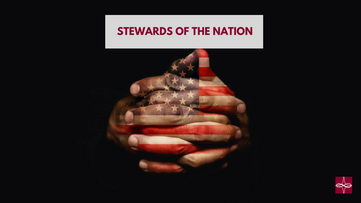

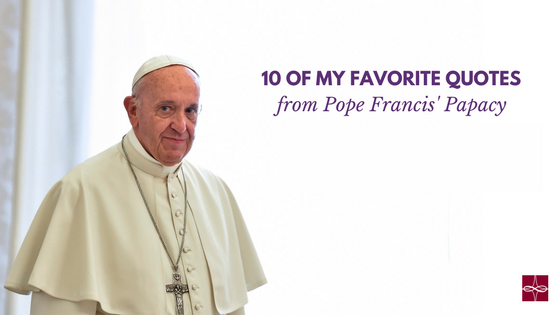

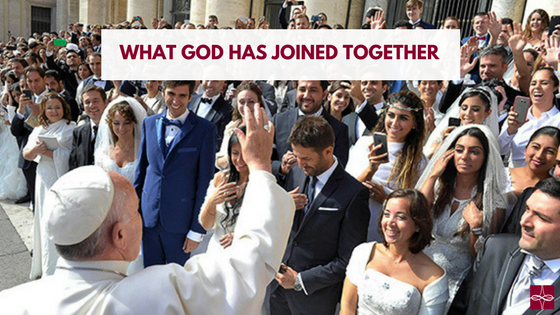

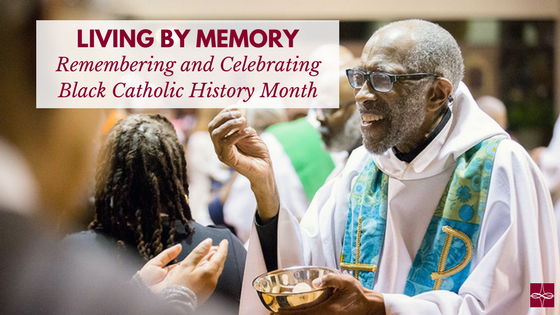
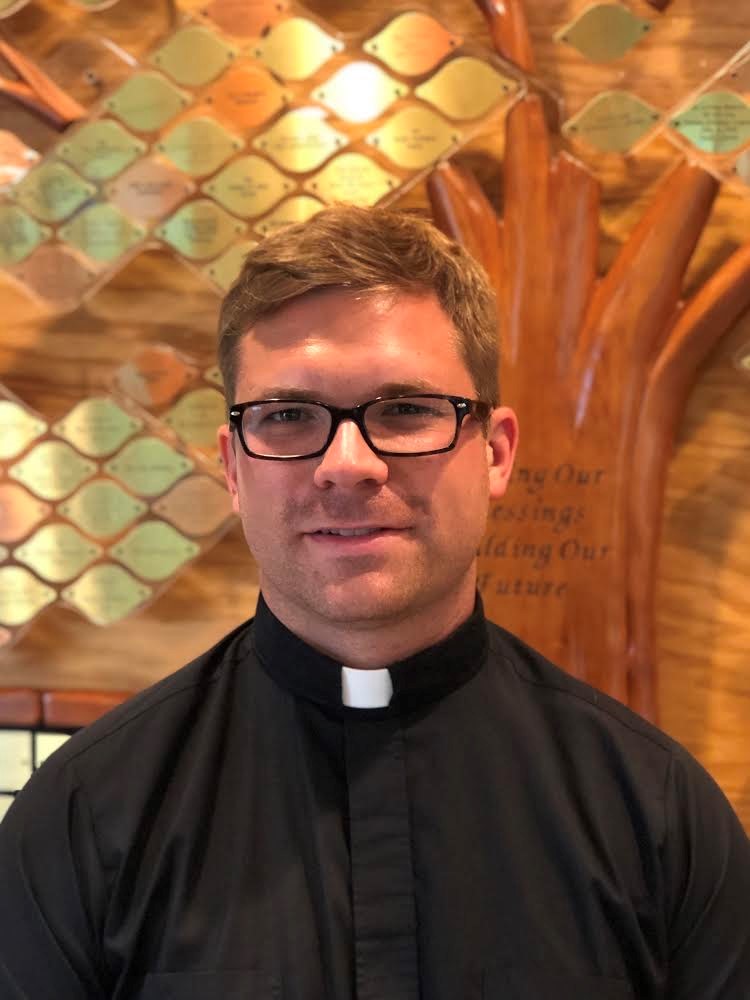
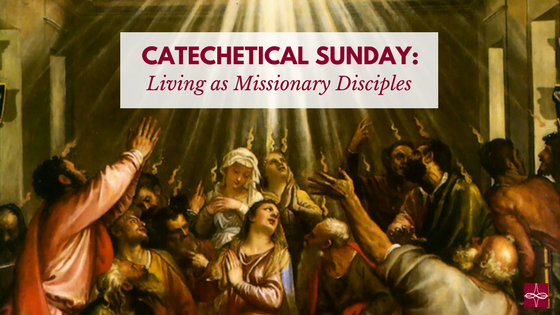
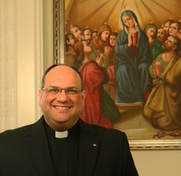


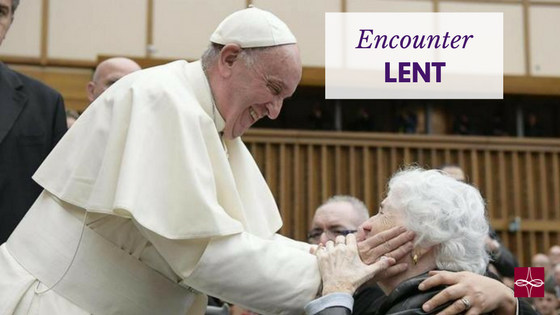

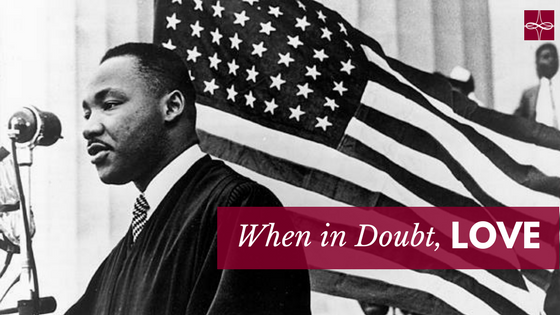

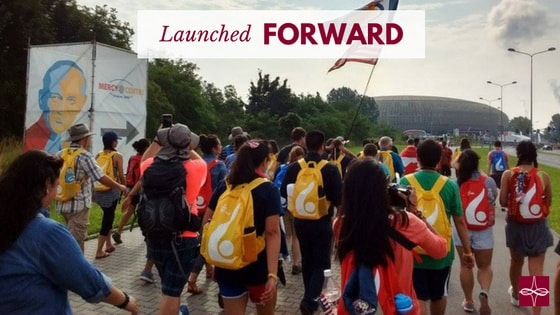
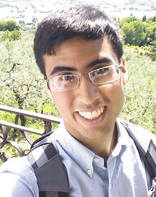

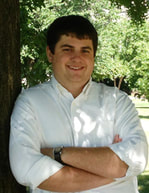
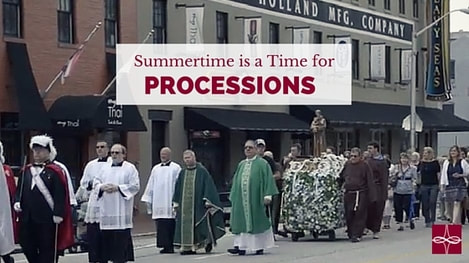

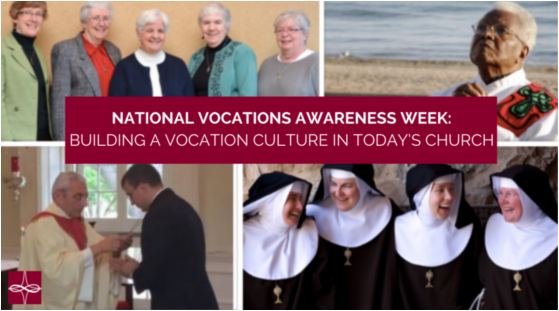

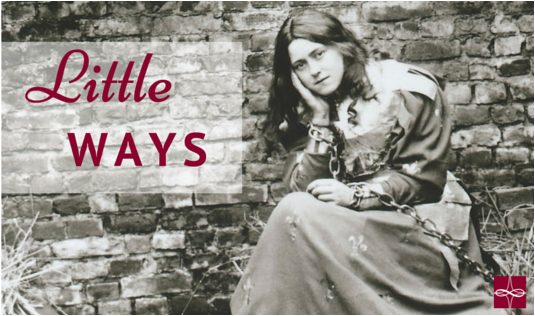

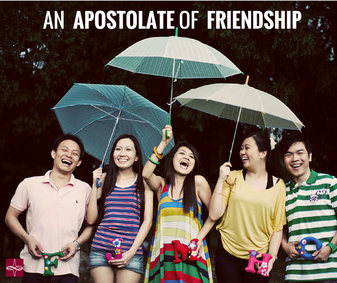

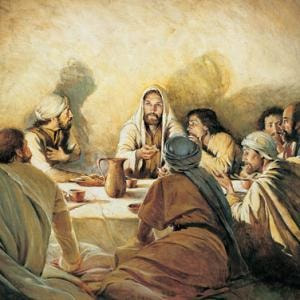
 RSS Feed
RSS Feed